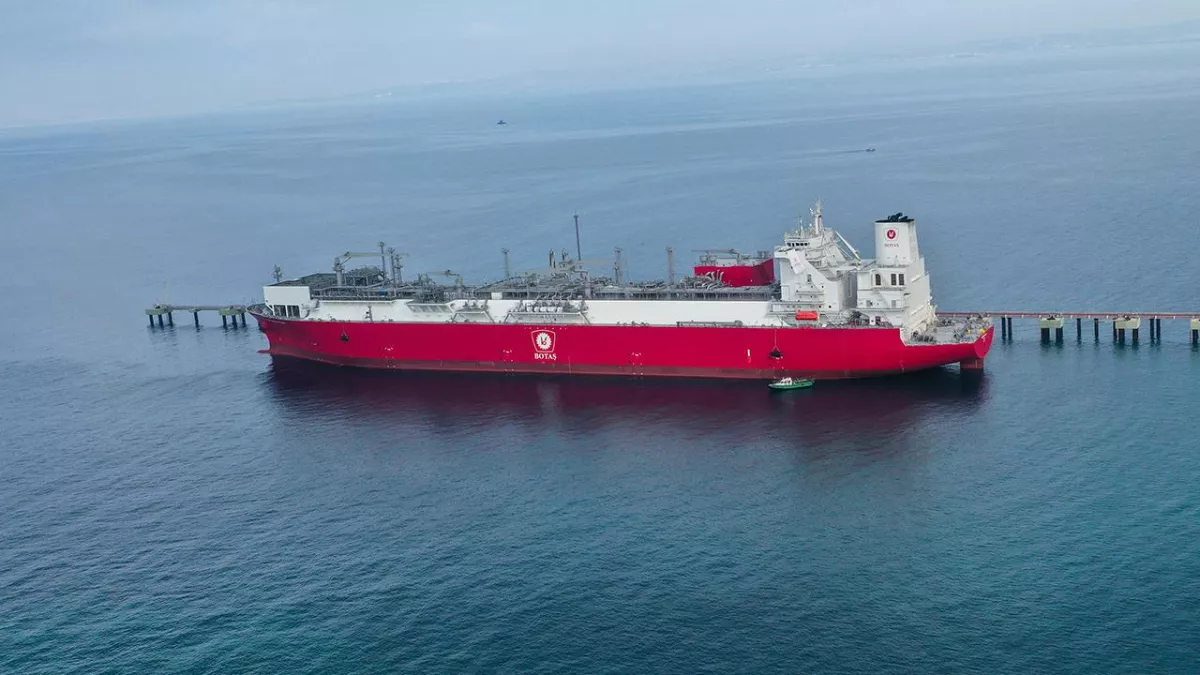Türkiye boosts Egypt's energy security with first-ever floating LNG terminal loan PHOTO
Türkiye's Energy and Natural Resources Minister Alparslan Bayraktar announced that a Floating Storage Regasification Unit (FSRU) owned by the state-run energy company BOTAS has been loaned to Egypt, marking the first time that such a unit from Türkiye will operate abroad on a temporary basis.
The announcement came after a meeting between Bayraktar and Egyptian Minister of Petroleum and Mineral Resources Karim Badawi, held in Ankara, Caliber.Az reports citing Turkish media.
The meeting, which coincided with the centennial of diplomatic relations between Türkiye and Egypt, resulted in the signing of two key agreements aimed at enhancing energy cooperation between the two countries. Bayraktar revealed that the agreement between Türkiye’s BOTAS and Egypt's state energy firm EGAS would see an FSRU deployed to Egypt, facilitating a flexible and efficient model to bolster natural gas supply security for both nations.

“With the contract signed between our national company BOTAS and Egypt’s state energy firm EGAS, an FSRU from the BOTAS fleet will be deployed overseas for the first time,” Bayraktar stated. “This will enable the implementation of a flexible and efficient model that contributes to the natural gas supply security of both Türkiye and Egypt. I sincerely believe these steps will open a new chapter in Türkiye-Egypt energy relations, and I hope it will bring mutual benefit to both countries.”
An FSRU is a specialized vessel used in the import of liquefied natural gas (LNG), capable of receiving LNG shipments, storing the gas in liquid form, and converting it back into its gaseous state for use in national energy grids. FSRUs are advantageous for their fast deployment and cost-effectiveness compared to traditional land-based regasification terminals.
In addition to the FSRU loan, Türkiye and Egypt also signed a Memorandum of Understanding (MoU) on hydrocarbons and mining. This agreement will facilitate cooperation in strategic areas such as oil, natural gas, geothermal energy, hydrogen, and critical minerals. Bayraktar emphasized that the MoU would foster the exchange of technical knowledge and joint studies between the two nations.
By Vafa Guliyeva








